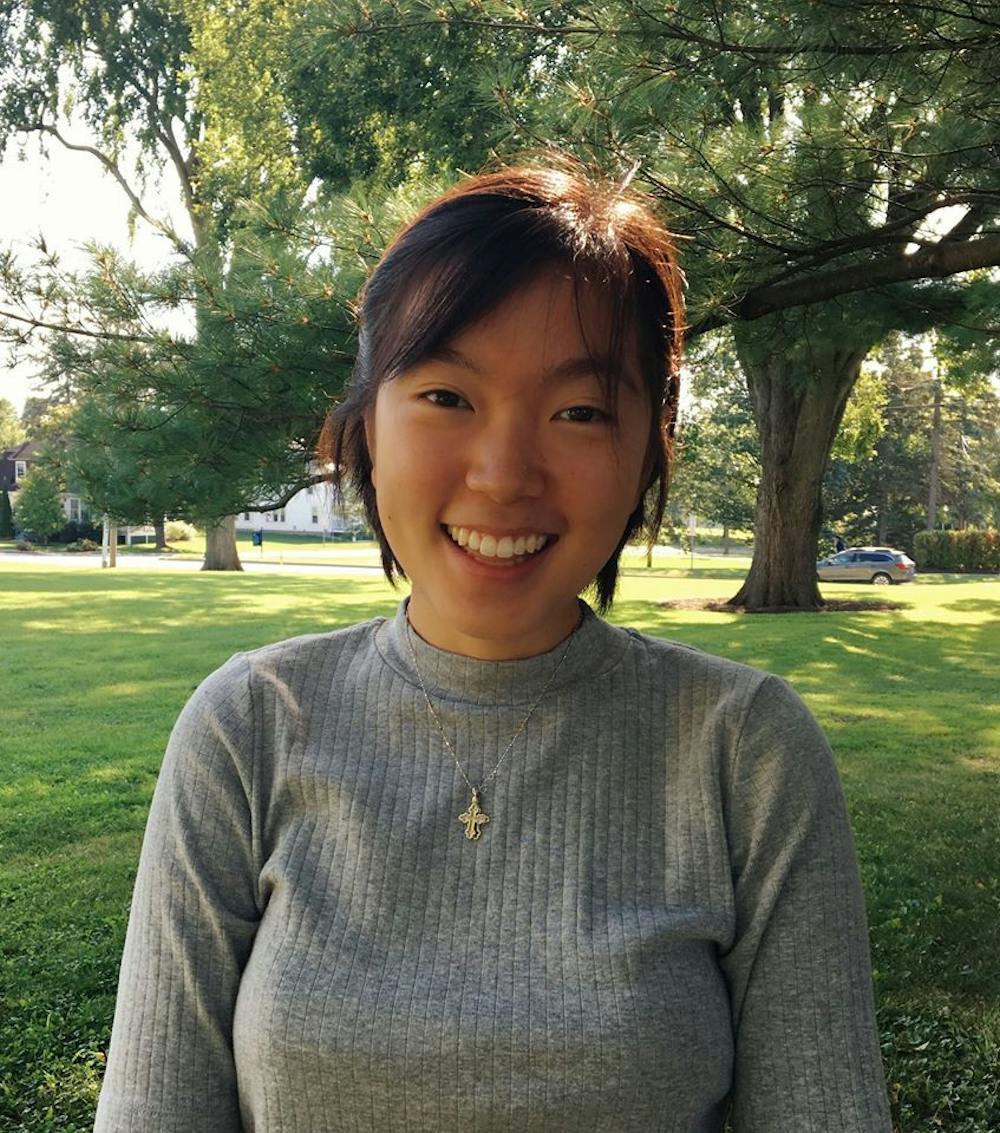This week The Middlebury Campus sat down with Jin Sohn '18, the new Student Government Association (SGA) President. This interview has been lightly edited for clarity, and was conducted both in-person and via email.
Middlebury Campus (MC): What are your primary goals for this academic year?
Jin Sohn (JS): We just completed our SGA Fall Retreat where members of the SGA had the opportunity to learn more about the logistics and roles of the SGA, as well as interact and connect with different community members such as administrators, staff, and faculty. There are already exciting and innovative ideas and initiatives that SGA Cabinet Directors and SGA Senators are working on, and there will be more information on these initiatives in the coming weeks. At this retreat, a term was coined for the year: “student-centric." We want the SGA to become much more visible and accessible to students. One way we are aiming to do this is by starting an SGA Snapchat account, which will be going live soon. We hope to show students the actual work of the SGA and the faces of its members, so that the SGA is not just another institution but a student-driven body.
Along the lines of accessibility and transparency, I am personally hoping to revamp different existing resources on campus such as the WeTheMiddKids website. The website is a forum which students can use to put up an idea or some kind of complaint, then once those hits a certain amount of upvotes in the community, the SGA has to address it. The website is not that user friendly and the last time it was used was 2014, but the website is still there so we’re going to look at how we can revamp it and make it more accessible to students, and also try to include administrators in a more open dialogue.
I hope to offer different opportunities for students to have a more direct role in their SGA; this includes launching SGA workshops and information sessions, such as a bill writing workshop. I am also working towards increasing accessibility and inclusivity on campus by partnering with different offices and departments, including Student Financial Services and MiddRides, to improve and expand the services for students.
MC: What specific areas of the SGA do you hope to alter or improve this year and why?
JS: Within SGA there’s a senate, which is elected by the student body, and then there’s the cabinet made up of students that are nominated by myself, the SGA president, and then ratified by the SGA senate. One thing that we’re trying to do is bridge groups closer together, so essentially we have appointed SGA Senators to different Cabinet Committees. For example, the SGA Educational Affairs Committee will now have an SGA Senator who will be a committee member on the SGA Educational Affairs Committee. The hope is that this new system will allow for a better flow of communication, increased student engagement, and greater input into the actual initiatives and implementation of bills.
MC: Do you intend to approach the administration differently from
previous years?
JS: At the SGA Fall Retreat, the members of the SGA were able to speak with President Patton and have started working towards building a common agenda. This is in the hopes that the SGA and members of the administration will have more routine check-ins and less of a call and response form of communication. That way, the SGA and students can have a better understanding of what members of the administration are working on, and the administration will know what the SGA and students need.
Additionally, the SGA has currently partnered with the Center for Community Engagement, the Scott Center for Spiritual and Religious Life, and the Commons on relief efforts for natural disasters across the United States. There was an email sent out to students earlier this week regarding ways to get involved at go/middhelps, and ways to learn more about ongoing efforts at go/disasterrelief.
MC: How will you deal with the Charles Murray protests and their subsequent impacts within the SGA from last semester? Will the debate between free speech advocates and protesters continue?
JS: I think that there will still be many conversations in regards to his visit within the SGA this semester, especially in light of the bills that were drafted but not passed last year. I think one of the biggest things I will do in my role as SGA President will be to facilitate conversations, whether they are between students or student groups, and do it from as equal of a playing field as possible. We’re trying to keep things fair across different cabinets as well, for example with social life, we want to bring different student groups together either through formal conversations, casual parties, or other meeting areas.
For me, one of the most important things will be to facilitate and prepare for these important conversations by fostering as open of an environment as possible. Within SGA Senate, half of the senators are new, while the other half are returning; this gives us a wide variety of perspectives, so we need to find a way to move forward while still recognizing the events that did happen. It will be a tricky balance, but I think student initiatives will be crucial to hearing all sides. This is a question that many on our campus are reflecting on and seeking answers to. My hope the SGA this year is to help facilitate such conversations from, as much as possible, a supportive and equitable environment. Last year the SGA hosted discussions and panels for students to participate in, and we are hoping to initiate similar events this year.




